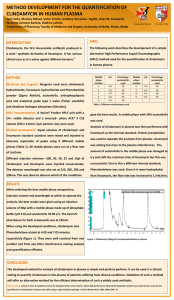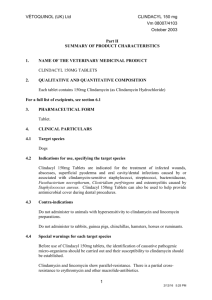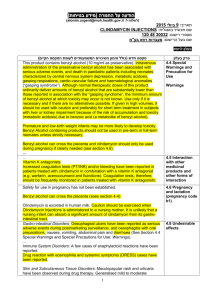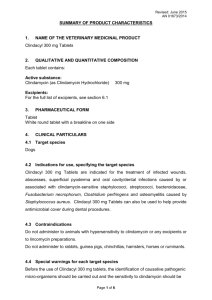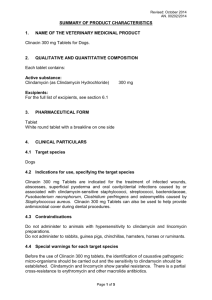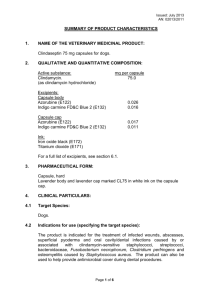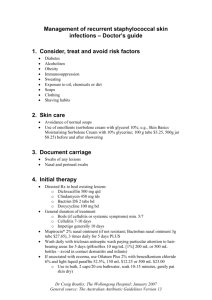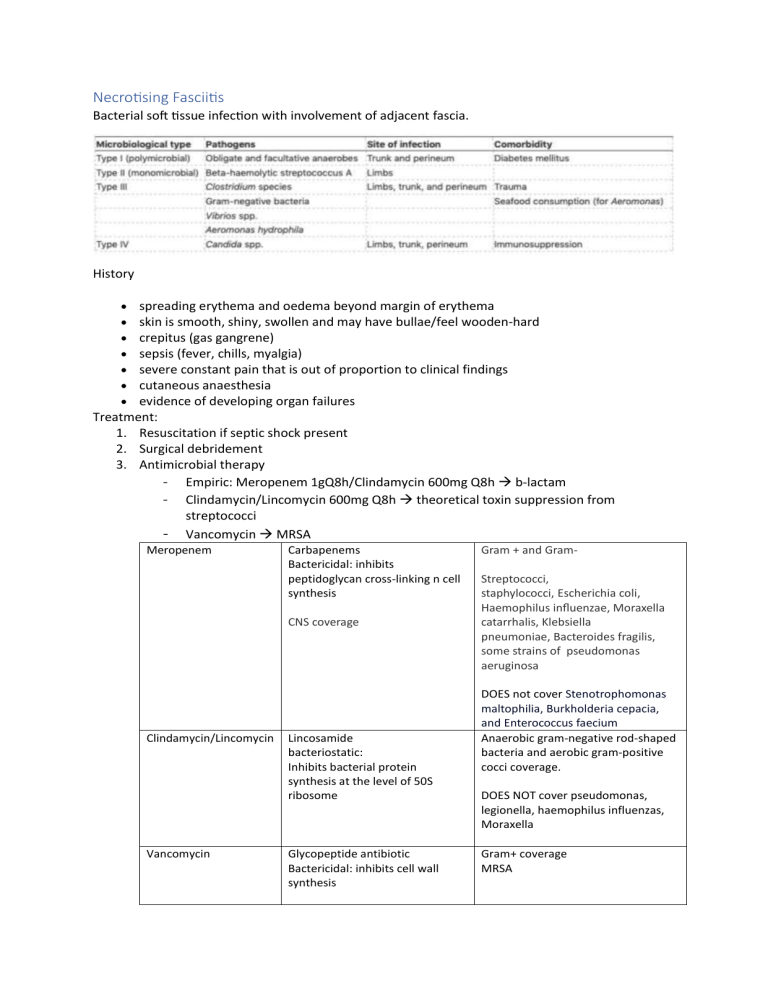
Necrotising Fasciitis Bacterial soft tissue infection with involvement of adjacent fascia. History spreading erythema and oedema beyond margin of erythema skin is smooth, shiny, swollen and may have bullae/feel wooden-hard crepitus (gas gangrene) sepsis (fever, chills, myalgia) severe constant pain that is out of proportion to clinical findings cutaneous anaesthesia evidence of developing organ failures Treatment: 1. Resuscitation if septic shock present 2. Surgical debridement 3. Antimicrobial therapy - Empiric: Meropenem 1gQ8h/Clindamycin 600mg Q8h b-lactam - Clindamycin/Lincomycin 600mg Q8h theoretical toxin suppression from streptococci - Vancomycin MRSA Meropenem Carbapenems Bactericidal: inhibits peptidoglycan cross-linking n cell synthesis CNS coverage Clindamycin/Lincomycin Vancomycin Lincosamide bacteriostatic: Inhibits bacterial protein synthesis at the level of 50S ribosome Glycopeptide antibiotic Bactericidal: inhibits cell wall synthesis Gram + and GramStreptococci, staphylococci, Escherichia coli, Haemophilus influenzae, Moraxella catarrhalis, Klebsiella pneumoniae, Bacteroides fragilis, some strains of pseudomonas aeruginosa DOES not cover Stenotrophomonas maltophilia, Burkholderia cepacia, and Enterococcus faecium Anaerobic gram-negative rod-shaped bacteria and aerobic gram-positive cocci coverage. DOES NOT cover pseudomonas, legionella, haemophilus influenzas, Moraxella Gram+ coverage MRSA Necrotizing fasciitis: Subtherapeutic amounts of clindamycin may have activity against toxin production by S aureus and toxin-producing streptococci. In in vitro and animal models, clindamycin decreases toxin production in necrotizing fasciitis caused by invasive group A streptococci. Consequently, despite the lack of human data, many experts recommend the combination of clindamycin and penicillin for severe group A infections such as necrotizing fasciitis. Clindamycin is recommended for this indication in Anti-Infective Guidelines for Community-Acquired Infections as a first-line agent, together with penicillin (8,9). Falagas and Gorbach (3), in a recent review, recommended clindamycin together with penicillin for severe skin and soft tissue infections due to group A streptococci or Clostridium perfringens.
